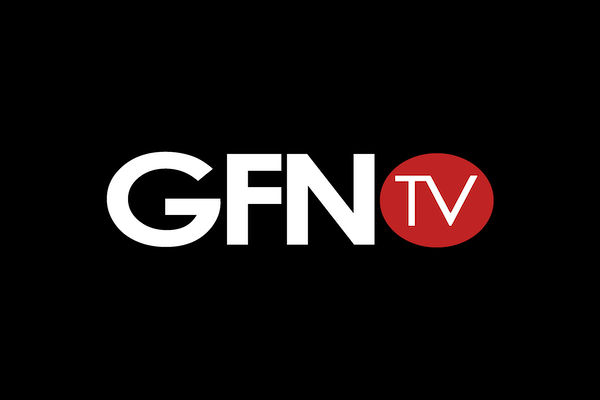Donald Trump’s announcement on Tuesday that he expects to soon be a thrice-indicted candidate is forcing GOP candidates to fully contend with the fundamental question of the 2024 presidential primary.
Is the former president fit to reoccupy the office?
The early responses suggest the field remains uncomfortable going after Trump directly over Jan. 6, but, instead, would attack him around the edges.
In South Carolina, Ron DeSantis said Trump “should have come out more forcefully” as rioters ransacked the Capitol, but added that it fell short of criminal activity. Vivek Ramaswamy told POLITICO in a statement he “would have made very different judgments than President Trump did” on Jan. 6. And Nikki Haley said the rest of the primary is threatening to be drowned out by Trump’s legal “drama.”
The answers represented at least a small crack in the deference that some previously courteous candidates had shown to Trump following his earlier two indictments. But only a small one. And privately, the campaigns were skeptical that even those modest attacks would have any impact other than benefiting Trump himself.
“Jan. 6 just gins up the base,” said a strategist working for a Trump rival.
Critics of the former president were left to wonder what it would take for the field to actually turn on him over Jan. 6, if a “target letter” informing Trump he was about to be indicted for his behavior around that day didn’t do the trick.
“This is the kabuki dance they’re going to be doing for months — it ain’t going to be the first time and it ain’t going to be the last time,” said Mike Madrid, the Republican strategist and co-founder of the anti-Trump Lincoln Project. “The kabuki dance is trying to have it both ways while they try to wait for dust to settle on his legal problems.”
Nearly a month before the first debate, the actions of Special Counsel Jack Smith’s grand jury has candidates hurtling toward a Rubicon they’ve not fully found a way to navigate: To assail Trump’s character as exhibited in the lead up to and on Jan. 6 or not.
Trump’s former vice president, Mike Pence, dealt with the matter head on in his announcement speech last month in Iowa, saying Trump “demanded” that he “choose between him and our Constitution,” and adding that “anyone who asked someone else to put them over the Constitution should never be president of the United States again.”
And former Arkansas Gov. Asa Hutchinson went further than his past remarks about Trump’s first and second indictments, declining to pad his statements with references to “presumption of innocence” and the need to “wait on the facts.”
“While Donald Trump would like the American people to believe that he is the victim in this situation,” Hutchinson said in a written statement, “the truth is that the real victims of January 6th were our democracy, our rule of law, and those Capitol Police officers who worked valiantly to protect our Capitol.”
Chris Christie, the former New Jersey governor, slammed Trump as well, saying his “conduct on January 6th proves he doesn’t care about our country & our Constitution,” regardless of what the latest case shows.
But aside from that trio, the rest of the field is landing in a proverbial no-man’s land on the question of Trump’s conduct on Jan. 6. Their reticence underscores how hard they continue to believe it is to hit Trump without looking squishy to the base.
DeSantis experienced that firsthand. Following his gentle criticism that Trump “should have come out more forcefully” on Jan. 6, the Florida governor was saddled by longtime Trump adviser Jason Miller with a new derisive moniker: “Ron DeCheney,” a reference to former Rep. Liz Cheney, the Republican vilified by the rank-and-file after co-leading the Jan. 6 committee.
Republican operatives have internalized the idea that to question Trump’s innocence related to Jan. 6 is to invite the wrath of his base. And though the expected indictment’s focus on Trump’s actions surrounding Jan. 6 would appear to give them ground to stand on, it’s unclear that line of attack is swaying primary voters.
“If you’re looking for an anti-Trump lane, it’s a fool’s errand,” said Madrid. “You’re looking for the fountain of youth. It doesn’t exist. What you may be trying to do is hoping that you can occupy a lane that opens up if he is put on trial and thrown in jail before the election.”
Republican consultants working to support Trump’s primary rivals didn’t immediately see Tuesday’s news as a defining moment in the race. The previous indictments already boosted Trump’s fundraising and rallied GOP voters to his side.
“It seems like each indictment has only gotten him more support,” said a senior adviser to a rival campaign who was granted anonymity to discuss campaign dynamics.
The adviser added that this likely forthcoming indictment is far more serious than the first two. But absent further details from Smith himself, it’s unclear what the political fallout would be.
“If it looks more like New York, then he will get a bump out of it,” said another GOP consultant granted anonymity to discuss the dynamics of the race, in reference to the indictment over alleged hush money payments to a porn actress. “But if [the DOJ] handles it like the other indictment in a professional way and they have a lot of backup, I think he is likely to suffer — but not a ton of damage.”
Sally Goldenberg contributed to this report.

